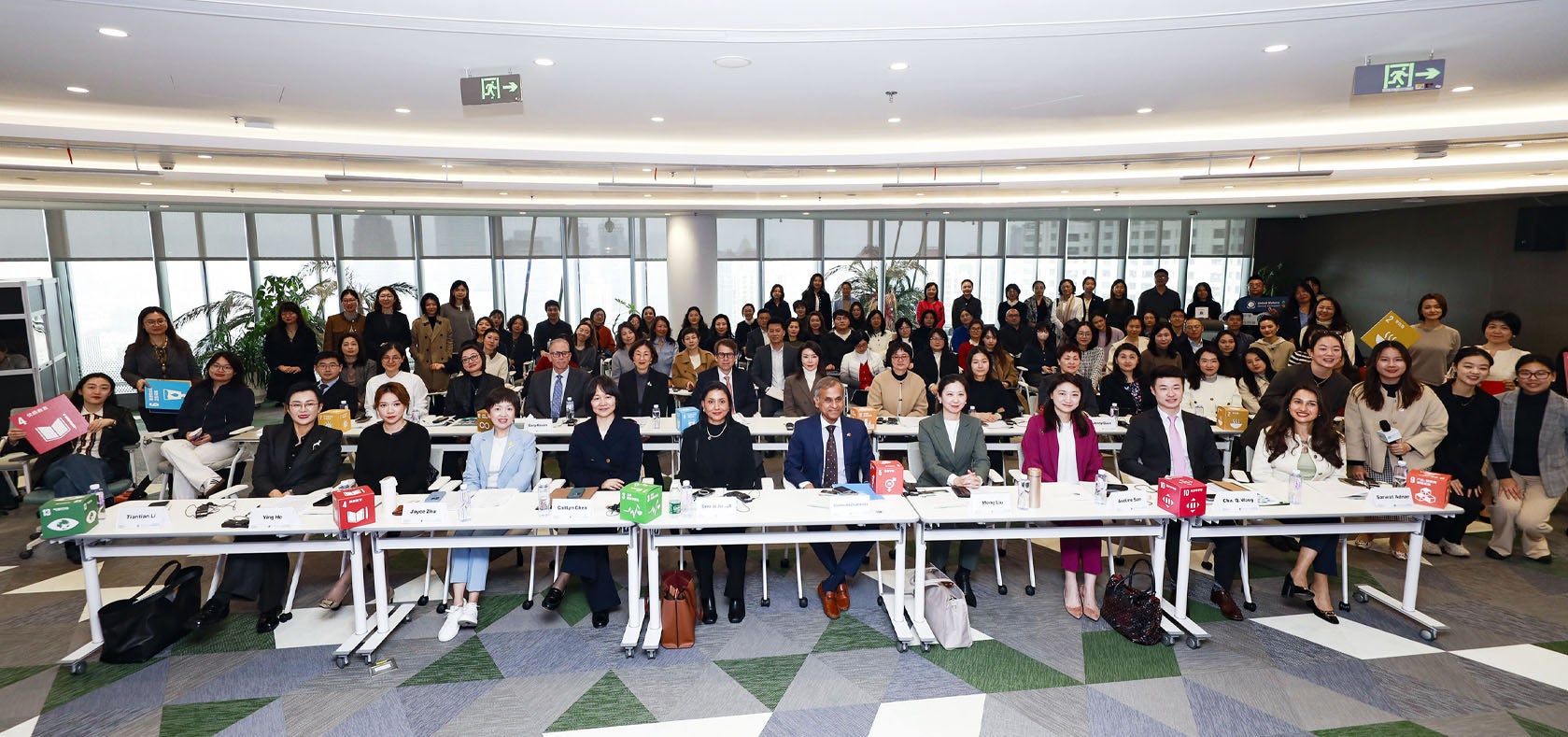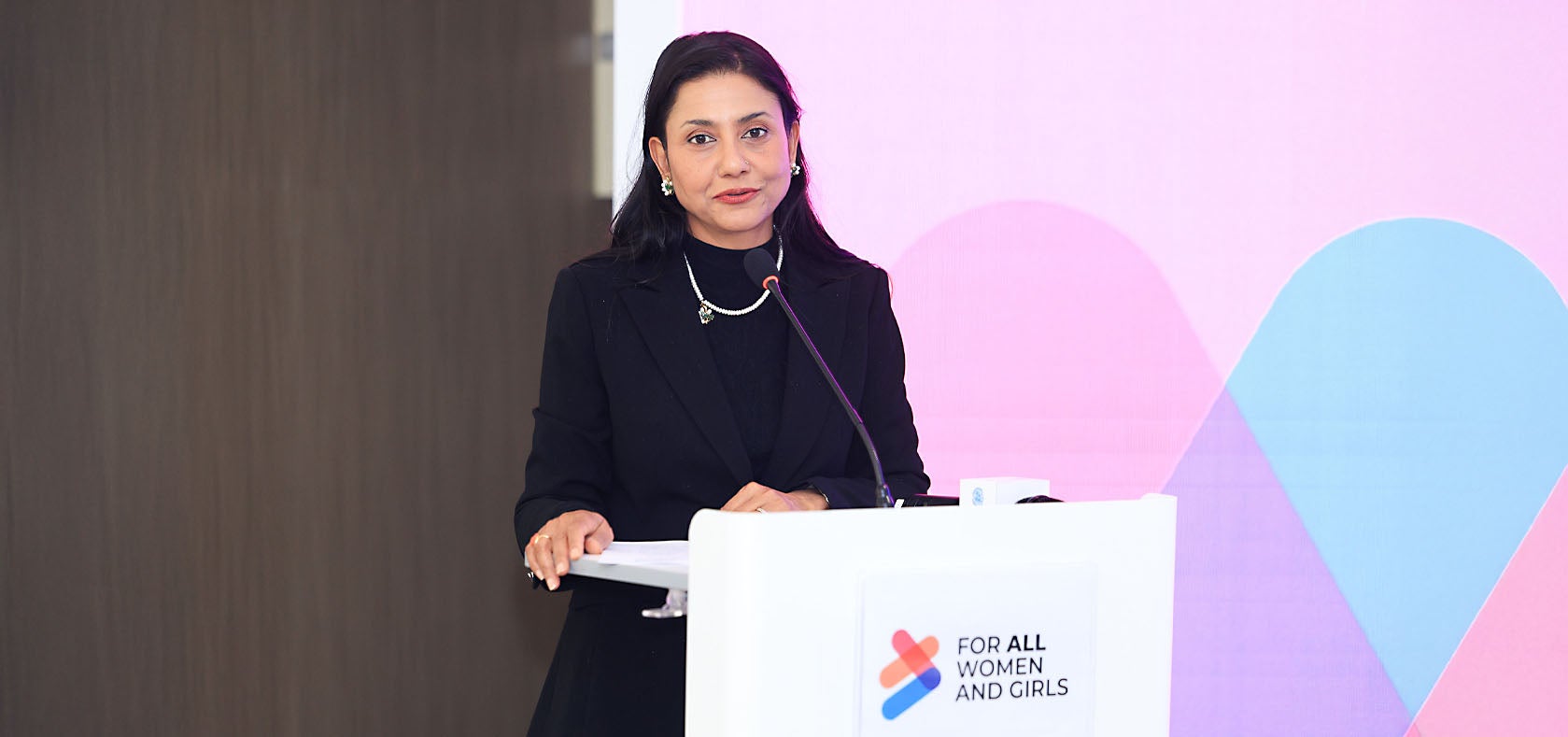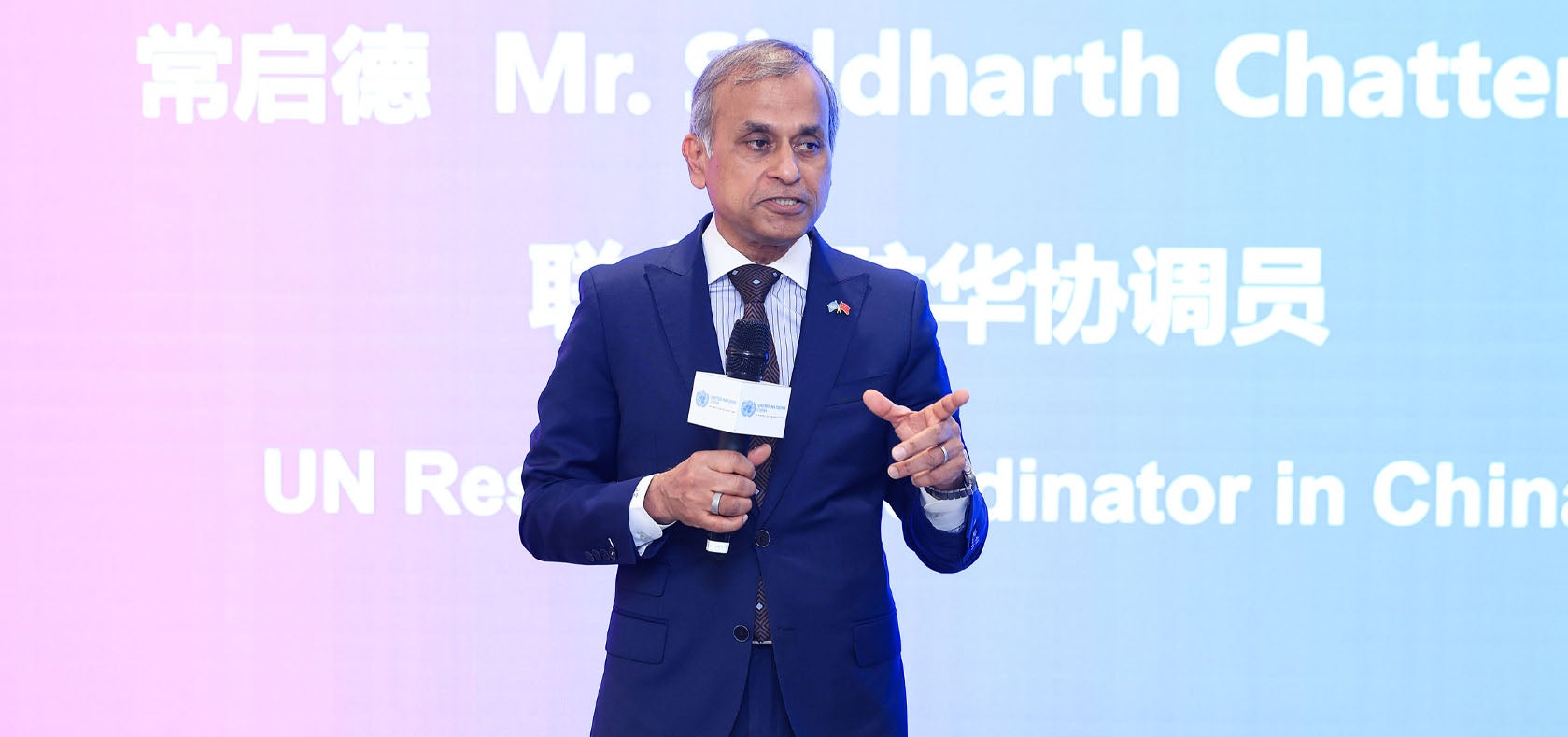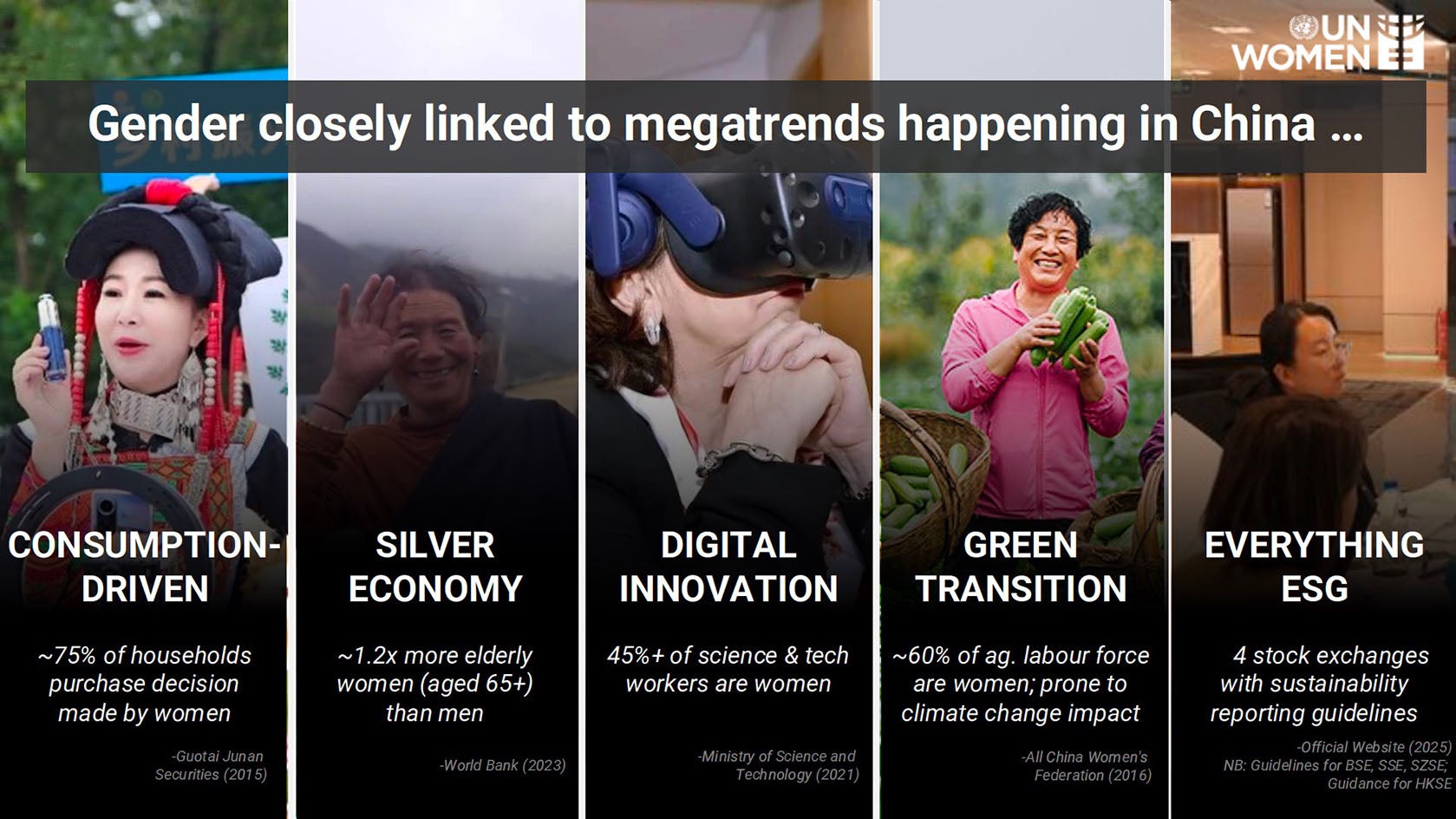Empowering China’s private sector to champion gender equality and women’s empowerment
Date:
Ahead of the 50th anniversary of International Women’s Day, the UN Women China Office and United Nations Global Compact (UNGC) Liaison Office co-organized a CEO Roundtable on 3 March 2025, in Shanghai. The event also commemorated the 30th anniversary of the 1995 Beijing Declaration and Platform for Action (Beijing+30), and served as a call to action, urging the private sector to enhance accountability, make concrete commitments, and increase financial investments to advance gender equality and women’s empowerment in alignment with the BPfA and the Beijing+30 Action Agenda.
Powered by the Women’s Empowerment Principles (WEPs) – a joint UN Women and UNGC initiative to advance gender equality in workplaces, marketplaces and communities – the CEO Roundtable convened over 80 senior and mid-level domestic and international business executives, and key stakeholders, to drive meaningful action. The event provided a platform for companies to share their lessons learned and challenges faced while advancing gender equality.

The roundtable discussions focused on enhancing women’s leadership, expanding access to career opportunities and fostering empowerment through inclusive business practices. In China, women make up about 43.2 per cent of the workforce, with approximately 320 million women employed, yet hold only 10–15 per cent of senior leadership positions.

Smriti Aryal, Country Representative of UN Women China, emphasized the importance of leadership: “We have the ability to step up – to use our personal leadership, voice and actions to move us forward and bring transformative change so we are the generation that closes the gender equality gap, once and for all. Progress is possible, but it is not inevitable. As we mark the 30th anniversary of the Beijing Declaration and Platform for Action in 2025, the world cannot wait for another 30 years to fulfil the promise of gender equality and women’s empowerment that was made in 1995.”
She also outlined four actionable ways businesses can drive gender equality: making public institutional commitments; implementing gender-inclusive strategies with clear targets and accountability; fostering allyship and mentorship; and cultivating an environment that promotes innovation and progress.

In his keynote speech, UN Resident Coordinator in China Siddharth Chatterjee added: “In today’s business landscape… investors, consumers and employees are demanding greater transparency and accountability in how companies support women. Businesses that take the lead will be better positioned for long-term success – unlocking new markets, attracting top talent and building more resilient economies.”
UN Women also presented research and its own analyses on megatrends in China and their implications for gender equality and businesses – including the emphasis on a consumer-driven economy, the silver economy, innovation-driven development and artificial intelligence, green transition and Environmental, Social, and Governance (ESG) disclosure.

UN Women highlighted that companies with more diverse leadership teams are 36 per cent more likely to achieve higher profitability. And leading companies with more women on their Board of Directors experience, on average, higher share price growth, by 5 percentage points, and lower share price volatility, by 9 percentage points, underscoring the business and economic case for gender-inclusive policies and leadership development initiatives.
With over 420 CEOs from companies operating in China committed to the WEPs, China ranks among the top five countries globally in WEPs adoption.
Representing WEPs signatories, Caitlyn Chen, Vice President of Tencent and Head of Tencent Sustainable Social Value, said: “Achieving gender equality requires the collective efforts of all sectors of society. We hope more corporate partners will join us in harnessing industry expertise and innovation to drive progress in women’s health, education, and economic empowerment. Let us collaborate openly and work together towards the Sustainable Development Goals, embracing a future full of hope.”
Going forward, UN Women and UNGC will continue to advocate for the WEPs, encourage more companies to integrate these principles in their operations, and foster an environment where all women and girls can thrive.